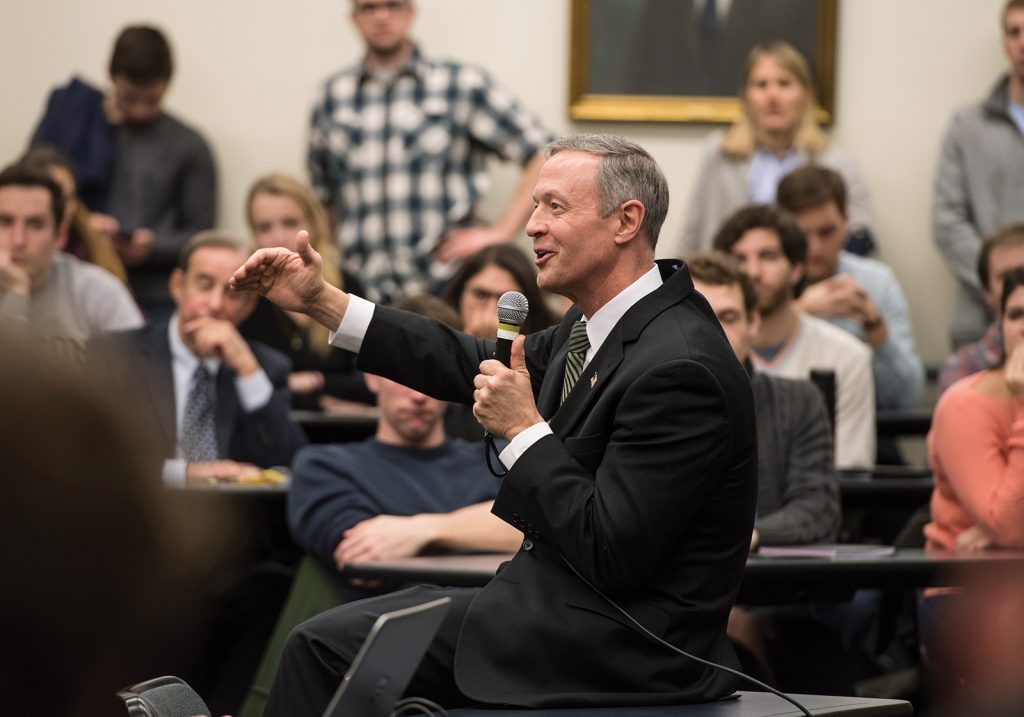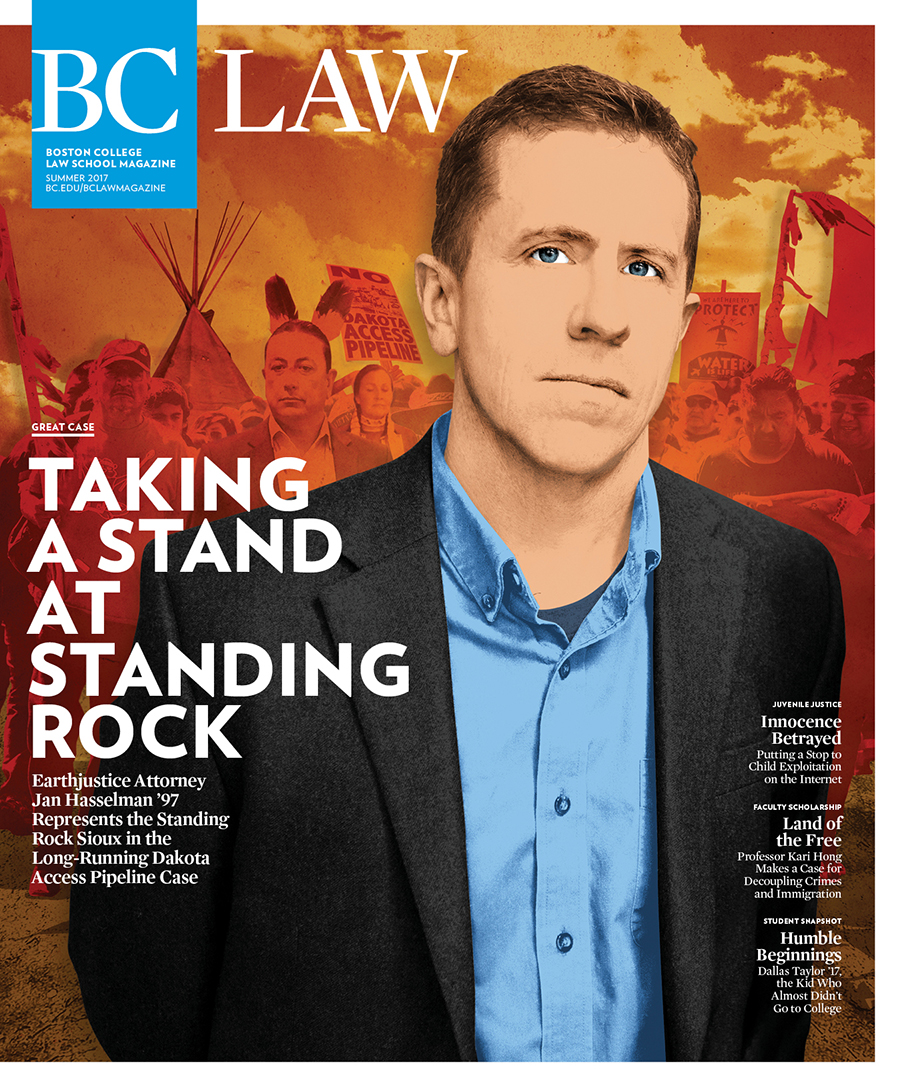Why did you compare Trump supporters to Nazis and the KKK?” a self-described conservative student asked former Maryland Governor Martin O’Malley, a Democrat, following his first public lecture January 24 as the Distinguished Visiting Professor at BC Law’s Rappaport Center for Law and Public Policy.
O’Malley playfully removed his jacket, rolled up his sleeves, and dove in. He has publicly agreed, he said, with BC theology professor Stephen J. Pope who argued that now is not the time for reconciliation. Not when Trump has promised “things like breaking up families and interning 11 million of our neighbors in immigrant for-profit detention camps, things like issuing registration cards based on religious affiliation to our Muslim brothers and sisters, things like allowing nations to arm themselves and go at it with nuclear proliferation.”
Just as Bonhoeffer did not reconcile with the Nazis, Bishop Romero did not reconcile with the oligarchs of El Salvador, and Dr. King did not reconcile with the KKK, nor should we with Trump. “That is not to say,” O’Malley said, “that everyone who voted for Donald Trump is a Salvadoran oligarch.” (O’Malley did not compare Trump supporters to Nazis and the KKK during this lecture. The student was apparently referring to statements he’d made elsewhere.)
“‘What is the spirit of moderation? It is the temper which does not press a partisan advantage to its bitter end. Which can understand and will respect the other side; which feels a unity between all citizens really, and not the factitious product of propaganda. …’” —Martin O’Malley, quoting American jurist Learned Hand
“Our democracy is in trouble,” O’Malley declared as he introduced his topic, Restoring the Integrity of Our Democracy. His pleasant folksiness was his spoonful of sugar. His medicine was a potent blend of facts, the words of great social thinkers, and his own articulation of the American progressive tradition. He asserted, “A large minority of us has now for the first time ever elected a presidential candidate whose campaign promises, platform, and rhetoric match ten of the fourteen indicators of fascism.”
America’s challenges are both political and economic, he said. “Trumpism can only succeed, in fact, in an atmosphere of economic desperation.”
“Whether it’s unrest in the poorest neighborhoods of our cities, or overdose and suicide deaths all across rural America, the heart of the desperation is the same—and it’s lack of hope for better days,” he continued. Under these circumstances, he said, “Voting becomes solely an act of protest.”
What to do? He urged that we fortify our democratic institutions as follows:
- Frame a principled opposition to Trumpism based on American principles of economic opportunity for all and the freedoms of each individual.
- Improve the Constitution with an amendment that guarantees the right to vote.
- Fight the corrupting of democratic institutions by big money by overturning Citizens United and by publicly financing election campaigns at all levels of government, especially Congress.
- End gerrymandered congressional redistricting and establish nonpartisan redistricting commissions, permit rank-choice voting, and do away with the Electoral College by getting states to commit to the National Popular Vote.
- From the grassroots up, rebuild the Democratic Party—run for office!—and bolster reputable news organizations by paying for our news, developing good journalists, and committing ourselves to policymaking based in objective truth.
Quoting American jurist Learned Hand, O’Malley made a pitch for moderation: “‘What is the spirit of moderation? It is the temper which does not press a partisan advantage to its bitter end. Which can understand and will respect the other side; which feels a unity between all citizens really, and not the factitious product of propaganda; which recognizes their common fate and aspirations—in a word, which has faith in the sacredness of the individual.’”
That spirit of moderation could be seen following the lecture: the conservative student whose question sent O’Malley into mock battle tweeted out a thank-you to the governor along with a photo of the two of them standing side-by-side, smiling.



